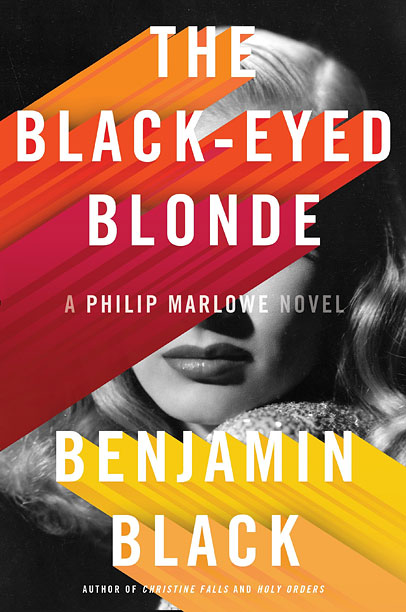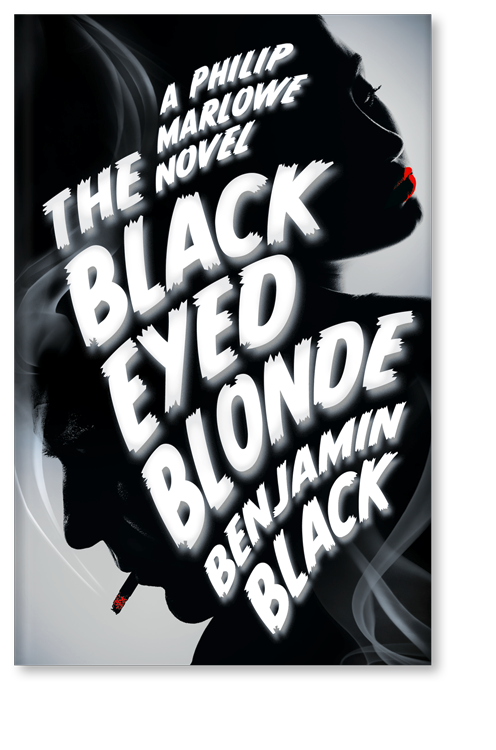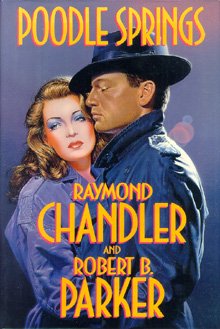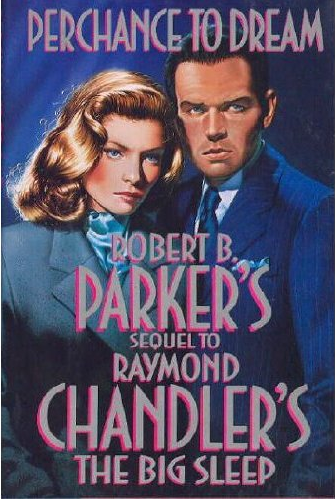The Thankless World of the Continuation Author

 Despite the title, this article is not intended as a forum for a continuation author to lament how unforgiving his critics are. Bad reviews are an inevitability and, in this instance, I’m the one bad-mouthing another continuation writer. I do not feel pangs of guilt, since the author in question is not only talented, but very successful and lauded in his industry. In other words, I’m an insignificant mouse picking on an elephant and that hopefully protects me from charges of betraying one of my own.
Despite the title, this article is not intended as a forum for a continuation author to lament how unforgiving his critics are. Bad reviews are an inevitability and, in this instance, I’m the one bad-mouthing another continuation writer. I do not feel pangs of guilt, since the author in question is not only talented, but very successful and lauded in his industry. In other words, I’m an insignificant mouse picking on an elephant and that hopefully protects me from charges of betraying one of my own.
I recently read Benjamin Black’s The Black-Eyed Blonde, the first Philip Marlowe continuation novel in nearly 25 years. I can think of only one nice thing to say about the book and that is at long last Robert B. Parker need no longer be disparaged as the man who wrote the two worst Philip Marlowe mysteries. I am a fan of Black’s original historical mysteries, but my familiarity with his work did nothing to convince me he was a good choice to revive Raymond Chandler’s classic private eye hero, particularly when a talent such as Ace Atkins is active in the field writing new Spenser mysteries that do justice to the originals.
While the Chandler Literary Estate selected Black, it is the author who bears the brunt of the abuse when fans are disappointed with the results. The Black-Eyed Blonde was an unused title found in Chandler’s notebooks. The title had previously been claimed for an infinitely superior short story in the 1988 anthology, Raymond Chandler’s Philip Marlowe, an uneven effort overall that still fared considerably better than either of Robert B. Parker’s contemporaneous Marlowe novels.

 Black’s book is mired in anachronisms and is a surprisingly poorly-crafted mystery, considering the author’s success in the field. Of course, even if the writing were better, the decision to make the book an unnecessary sequel to Chandler’s The Long Goodbye (1953) is even worse than deciding The Big Sleep (1939) was in need of a direct sequel, as was done with Parker’s second Marlowe effort, Perchance to Dream (1991). Both decisions were either approved by the Chandler Estate or were handed out as assignments to the authors, respectively. Unnecessary and unwanted sequels to genre classics doom the continuation author to rejection, as happened here when Chandler fans greeted the novels with scathing contempt.
Black’s book is mired in anachronisms and is a surprisingly poorly-crafted mystery, considering the author’s success in the field. Of course, even if the writing were better, the decision to make the book an unnecessary sequel to Chandler’s The Long Goodbye (1953) is even worse than deciding The Big Sleep (1939) was in need of a direct sequel, as was done with Parker’s second Marlowe effort, Perchance to Dream (1991). Both decisions were either approved by the Chandler Estate or were handed out as assignments to the authors, respectively. Unnecessary and unwanted sequels to genre classics doom the continuation author to rejection, as happened here when Chandler fans greeted the novels with scathing contempt.
I do find it telling that the Chandler Estate appears to be only interested in authorizing late-period Philip Marlowe continuation novels set during the 1950s, when both the detective and his original author were showing their age. The 1950s are hardly the era readers conjure when thinking of seminal hardboiled noir thrillers such as the early Chandler classics any more than an over-the-hill Marlowe is the version detective fans wish to revisit.
I’ve read a number of reviews of The Black-Eyed Blonde. Quite a few take Black to task for not portraying Marlowe the way readers remember him. This is one criticism I take exception to, for it is one of the few aspects Black gets right. The trouble is Black is recreating Marlowe of the same era as Chandler’s final completed novel, Playback (1958). It is a Marlowe of a poorly-written final effort when age, alcohol, grief, and self-pity had clouded his author’s mind to the point where the detective did not act anything like readers remembered him. Inevitably, when a long-running series character is revived, readers turn to their collective memory of when both character and the original author were at their most vital. The tired and depressing Marlowe of The Black-Eyed Blonde is the one Chandler left readers with, but not the one we wish to see revived.
There was a buzz around the Internet in recent weeks over rumors that Lucasfilm and Disney were considering rebooting the Indiana Jones franchise with a new leading man in the role. Imagine if the rumors proved correct, but the studio determined to go with an older actor portraying the aged Indy of the late 1950s that audiences last saw in Indiana Jones and the Kingdom of the Crystal Skull (2008). Fans may not wish to see Harrison Ford leave his signature role, but they certainly wouldn’t want another actor to play their hero when his powers have diminished to the point where one can only compliment him by saying he’s in better physical shape than most men his age.
Consider the fact that this is the same decision inexplicably taken by the Chandler Estate for their three Philip Marlowe continuation novels. They have given fans a private eye ready to be put out to pasture, who is functioning as a relic of a bygone era and, to add insult to injury, they have forced an unwieldy continuity on the new novels by demanding they be sequels to classic mystery novels that needed no further word.
Someday, with a bit of luck, the Chandler Estate will assign a hardboiled writer who excels at recreating the past accurately. Robert B. Parker was a good choice to continue the series 25 years ago, but he was given thankless assignments that no writer could have handled well. Sadly, Parker has passed on. His successor with the acclaimed Spenser private eye series, Ace Atkins, could certainly deliver the goods for the Chandler Estate and do justice to a character and author whose shadows still loom large over the genre. The trick is he would have to be given free rein to create an original work set during the character’s prime, unhindered by an obsessive desire to reference past characters and incidents.
For now, mainstream continuation authors will find they have embarked upon a rough and frequently unforgiving road. The literary revival need not be mercenary grave-robbing or, worse still, an abominable desecration attempting to breathe life back in the corpse of the dearly departed. Okchon Van Ash noted there just aren’t enough stories about our favorite characters when her husband earned the blessing of both the Sir Arthur Conan Doyle Literary Estate and the Sax Rohmer Literary Estate to bring Sherlock Holmes out of retirement to meet Dr. Fu Manchu on the brink of the Great War. It is a sentiment many readers share, if only the literary estates care enough to choose writers who will do their best to bring their favorite characters back as readers wish to remember them.
William Patrick Maynard was authorized to continue Sax Rohmer’s Fu Manchu thrillers beginning with The Terror of Fu Manchu (2009; Black Coat Press) and The Destiny of Fu Manchu (2012; Black Coat Press). The Triumph of Fu Manchu is scheduled for publication in July 2014.
I think those are very big boots to fill. Chandler’s plotting was pretty shambolic*, but his superlative style, his finely-tuned sense of righty and wrong and – more crucially – his ability to create a sense of a time and a place make him one of the all-time greats. No modern writer, no matter how good – and Banville is a consummate stylist – could pull the latter off. How could they? To document an era as thoroughly as Chandler did would entail being his contemporary.
* if memory serves me correctly, a chauffeur is found submerged in a limousine early in ‘The Big Sleep’. When somebody said they could never figure out who was responsible, Chandler replied – ‘Damn! I don’t know either!’
Everyone focuses on the writer of these revivals, the author’s estate, the fans, but does anyone consider the author himself? Can you imagine how Chandler would feel knowing this was happening? In life he fought with editors to protect his writing. He’d battle with them over split infinitives. The idea of money hungry estate handlers turning his prized literary creation over to a writer for hire, in short, a mercenary, must have him spinning in his grave.
@Aonghus Fallon, the thing is THE BLACK-EYED BLONDE never approaches the quality of Banville’s other “Benjamin Black” mysteries. I would like the book far better if it did. I don’t expect any writer to be a Chandler clone. However, it isn’t unreasonable to want a well-written period piece mystery free of anachronisms and worthy of being inspired by a true master like Chandler. Early Ross Macdonald or even Marvin Albert are examples of writers who followed in his footsteps and acquitted themselves quite well.
As for the unsolved murder in THE BIG SLEEP, that’s what sparked the decision to authorize PERCHANCE TO DREAM.
@John Whalen, purists are always bothered by the very existence of continuation novels even though they do nothing to tarnish the originals. The one exception is when only the continuation novels are in print and the originals are deliberately suppressed. That is a rare occurrence, thank Crom. If Raymond Chandler were somehow able to be aware of the literary field 55 years after his death, he might very well be grateful his works have achieved immortality and that other authors have struggled and failed to match his standard or emerge as a true heir after all this time. Hardly the same thing as seeing his own work butchered by editors, I would think. In any event, the originals are untouchable. Continuation novels are there for those who want more from a favorite character even if it cannot match the quality or impact of the genuine article.
I’ve not read PERCHANCE TO DREAM or even own a copy, although I have read a few paragraphs from POODLE SPRINGS. If memory serves, Chandler had written the first few chapters before his death. And I only read about a third of RAYMOND CHANDLER’S PHILLIP MARLOWE.
When I came across THE BLACK-EYED BLONDE a few weeks ago, I had serious reservations about it. None of the reviews I’ve seen have made me want to pick it up.
You are correct, though, in that continuation authors have a hard and usually thankless task.
Which raises a question. Both Sam Spade and Phillip Marlowe had their own radio series back in the 40s. I’ve not heard many of the episodes from those shows, so I don’t have a good feel for how successful they were. Do you have any thoughts about them?
I am an OTR fan. The Howard Duff SAM SPADE series is a very different animal than Hammett’s original. It is a lighthearted private eye show with Effie turned into a Gracie Allen comic relief character. It is a fun show and was very influential on other OTR series (especially JOHNNY DOLLAR and RICHARD DIAMOND), but it is Spade in name only. The PHILIP MARLOWE radio series was more faithful and adapted a number of Chandler’s (non-Marlowe) detective fiction and maintained the hardboiled tone well (pretty much what the Powers Boothe cable TV series did in the early 1980s).
The anthology is hit and miss, but is worth reading. Neither Robert B. Parker book works, but Parker felt the same allegedly. I thought it was a case of right author, wrong assignment. The Benjamin Black book was not as good as I expected considering the quality of his other work. That said, I would encourage everyone to read the book and judge for themselves. It certainly isn’t the worst book I’ve read, it just wasn’t the one I was hoping to read.
Helen Brann’s Silent Night continuation or whatever is the only good posthumous Robert Parker. The first half of the book is either by Parker himself in good form or an incredibly good pastiche. The second half is either an incredibly good pastiche or Parker’s first draft. Some of the reviews on Amazon complain about Spenser’s recipe for turducken, but there’s tragedy in every life. We all have to overcome it and go on.
And Hell, I liked the Parker Chandlers. The original had different flaws, but Parker was about as good. Everything starts as fanfic.
Interesting how they used the plot-hole as the inspiration for ‘Perchance to Dream’! I never realised Parker actually wrote *two* Chandler books (I read the first – I didn’t see the join, although I remember the story growing flatter and flatter throughout the book’s second half). This kind of fiction can be very enjoyable if it’s done properly – e.g. ‘The Seven-Per-Cent Solution’.
I think the reason I didn’t finish the anthology was there were a couple of stories close together about how Marlowe didn’t do divorce work but did in that story, much to his regret. I put the book down and went on to something else, intending to come back to it but never did. I’ll probably give it another try sometime soon. I’ve been feeling the urge to revisit Chandler.
And I’m a big fan of JOHNNY DOLLAR.
@westkeith – not that WPM needs me to back him up, but the Spade radio shows really don’t bear much resemblance to Hammett’s stories.
They went more for fun, similar to the Nero Wolfe radio shows starring Sydney Greenstreet (I love Wolfe and big Sydney but they didn’t go together well).
I’m also a big Johnny Dollar fan and I’ve got plans to do a post on that series here within my ‘Public Life of Sherlock Holmes’ column. Richard Diamond as well.